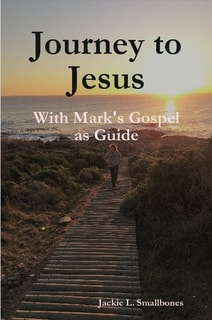|
29The next day he saw Jesus coming towards him and declared, ‘Here is the Lamb of God who takes away the sin of the world! 30This is he of whom I said, “After me comes a man who ranks ahead of me because he was before me.” 31I myself did not know him; but I came baptizing with water for this reason, that he might be revealed to Israel.’ 32And John testified, ‘I saw the Spirit descending from heaven like a dove, and it remained on him. 33I myself did not know him, but the one who sent me to baptize with water said to me, “He on whom you see the Spirit descend and remain is the one who baptizes with the Holy Spirit.” 34And I myself have seen and have testified that this is the Son of God.’
Imagine the scene: John the Baptizer standing on the eastern shore of the Jordan among a motley crowd, some his disciples, some onlookers, some skeptics wondering, ‘Who does John think he is, anyway?’ The one thing they had in common? All were standing on the wrong side of the River Jordan. They were on the east side, which was not part of Jewish territory, which meant they were far from Jerusalem, the center of Jewish religious life. The east side of Jordan was also a place most people ordinarily avoided. First, it wasn’t easy to get there—no bridge across the sometimes flooded and dangerous river and no boats to take them over. People risked their life crossing to the other side. Second, it was a wilderness area and wildernesses are associated with barrenness, hunger, stripping of all that’s familiar and comfortable and thus not popular with the masses. Third, John wasn’t exactly a comfortable figure who made people feel good about themselves. His clothing (identical to the Old Testament prophet Elijah) and his food (locusts and wild honey) made him something of an oddity. His message was harsh—a sharp call for radical repentance and confession of all sins. Yet, the crowds came. They made the treacherous trip across the Jordan River; braved the fearful unknowns of the wilderness and the demanding message of John. Some thought John was their promised Messiah. Others believed he would lead them to Messiah, sooner rather than later. They were baptized and stuck around and waited with John, hoping to see the Messiah. Trouble was, no one, not even John, knew what Messiah looked like or what to expect. But they all had their opinions about what Messiah would be like, what he’d do and say. I’m not so much interested in what people then thought about Messiah. I am interested in what people today, in 21st century USA, think and hope for. And yes, we also hope for Messiah or a Messiah. What we want in a messiah has changed over the years to match the latest political climate. Once, not so long ago, some wanted a Messiah to restore our nation to true obedience to the God in whom we claim to trust, the one we assume is being referred to in our famous and now controversial saying, ‘In God we trust.’ Back then, obedience for many meant abolishing all abortions and defining marriage as strictly between a man and woman and tabooing same-sex relationships. Others, on the other hand, hoped for a Messiah who would legalize all abortions and all marriages, regardless of gender. Today, we want a Messiah to successfully deal with immigration problems, fanatical terrorist groups, the failing economy. Some want immigrants kicked out and barred from entering the country; they want guns to be easily obtainable and acceptable to carry in all places. Others believe we should welcome immigrants and show them hospitality; they want restrictions placed on gun availability. In other words, we all want different things and we all believe we’re right! Do you see the problem? The Jews of Jesus’ day were no different to us today. They all knew, or thought they knew, what Messiah should and would do and their opinions were as contradictory as ours are. The big dilemma for John the Baptizer was identifying and introducing the true Messiah while avoiding all contrasting stereotypes. If he identified Jesus as one who’d ban all abortions and marriages between same genders (or whatever our current concerns are—deport eleven million immigrants, make America ‘great again’, build a wall to limit immigrant traffic, etc., the list is endless) some people would follow this Messiah. If he introduced him as a messiah who would legalize all abortion, gay marriages, welcome all immigrants, build bridges instead of walls, etc., a different group of people would be enraptured and follow such a Messiah. John had to come up with language which, while still being offensive to some, was language that couldn’t be aligned with either side regardless of issues and pet causes. He managed to do it. The day Jesus finally came to John across the Jordan and John recognized him as Messiah, he loudly shouted out, ‘Here is the Lamb of God who takes away the sin of the world!’ No one understood. This had nothing to do with anyone’s pet issues. Whatever their ideas about Messiah they weren’t expecting a lamb, neither were they expecting a Messiah who would concern himself with the sin of the world. Jesus, the way John introduced him, was not the Messiah Israel was looking for. Frankly, Jesus, the Lamb of God who takes away the sin of the world, isn’t the Messiah many of us Christians are looking for either, regardless of where in the world we live. John didn’t say he’d restore the nation (neither Israel then nor the United States today, or any other country in the world) to greatness or help individuals live a blessed and prosperous life. And, let’s face it, a lamb isn’t exactly a symbol of power. What on earth can a lamb do against the power of modern-day weaponry; the irrational and ruthless killings by Islamic State and others like it? Nothing—or so we think. A Lamb of God doesn’t stand a chance today any more than he did two thousand years ago. He’d never be elected in anyone’s presidential race. And so we all do what John’s crowd did back then. We watch as this strange Messiah walk past us and we turn to each other and argue again about our favorite ‘messiah’ candidate for president.
0 Comments
|
AuthorWrite something about yourself. No need to be fancy, just an overview. ArchivesCategories |
- Home
- LIVE THE STORY
- Read Your Bible
- Spiritual Practices
-
Sacred Sagas
- Smallbones Saga 2022
- You just need to be thirsty
- Can these bones live?
- Power the Jesus' Way
- Response to Jan 6
- Binding the Strong Man
- Come, everything is ready
- Help my Unbelief (Mk 9:14-29)
- Off with your shoes
- Psalms and prayer
- Praying in Ugly Times
- The Messiah we Want
- Why I can't vote for Trump
- Worship & Discipleship
- About Me
- Contact
Books Available |
RETREAT OPTIONS |
Let the redeemed of the LORD tell their STORY
(Psalm 107:2 (TNIV)) © 2016 LiveIntoBeauty. All Rights Reserved.
|
 RSS Feed
RSS Feed



